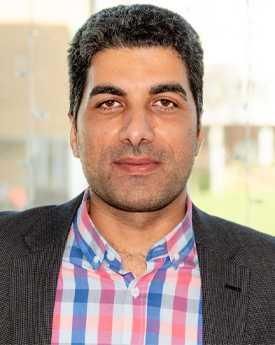How to apply
Self-funded applications
To begin the process you will need to find a PhD Supervisor whose research interests align with your own. You will need to contact them to discuss your application.
Industry-funded applications
Launch your career in research and development with an industry-focused, three year funded PhD for graduates with a background in scientific disciplines. Each PhD is tailored to both the subject and the requirements of a specific industry.
Your research proposal
We will require a research proposal on the area/s you are interested in joining us to study. This will be used to help us determine who will be the most suitable potential academic supervisor for your research.
This is the starting point to find a suitable supervisor who will then if interested contact the applicant for a phone interview to discuss the proposal and intended research, meaning your proposal is not your permanent topic for your PhD studies and open to negotiation. Past guidelines have suggested the following:
- a section that defines and characterises your selected research area;
- a section that briefly surveys and sums up the state of the art in this area;
- a section that identifies deficiencies in the state of the art which you would like to address in your PhD;
- a section that outlines some possible research directions that you might pursue;
- a list of references that you cite in the above sections.
We recommend applicants submit their research interests and the PhD Admissions Tutor can pass their application onto the most relevant and available potential supervisor. However, If you would like to search for a suitable academic supervisor(to quote in your application) then you can find a list of our academics here.
Apply online
To submit an application, simply create an account on the Applying for postgraduate study website and then select ‘Create a new application’ from your homepage once you are logged-in.
Using your account on the My Applications website, you are able to submit applications for the programme(s) which you wish to study, upload supporting documentation and provide us with information about referees. You may apply for all our postgraduate programmes using this method.
Current Lancaster Students
If you are a current Lancaster student, or you have recently graduated from Lancaster, we can reduce the amount of information that you will need to provide as part of your application. You will need to provide only one reference and will not need to supply your Lancaster degree transcript. We will also pre-fill your personal details, ready for you to check.
What to include
If you use the Postgraduate Applications portal then you will be advised which documentation you need to upload or send to us. We can automatically contact your referees once you have submitted your application if you ask us to.
The supporting documentation screen will provide you with a list of required documents. These will usually include:
- Degree certificates and transcripts of previous higher education (college/university) degrees or other courses that you have completed/for which you are currently studying.For transcripts in languages other than English, a certified English translation will be required.
- A personal statement to help us understand why you wish to study your chosen degree.
- You also need to complete a research proposal which should include the following:
- the research area you are interested in
- the research question(s) you are specifically interested in
- who within Engineering appears best qualified to supervise you
- the methods you envisage using in your studies
- plus any other information which may be relevant
- Two references
- If English is not your first language, we require copies of English language test results.
When to apply
You can apply at any time of the year for PhD study, but we encourage you to start at one of the predefined start dates of October, January or April. In some circumstances, July start date will be considered. An MSc by Research will usually start in October. If you wish to be considered for funding, are applying form overseas or require on-campus accommodation, we recommend you apply as early as possible.



























